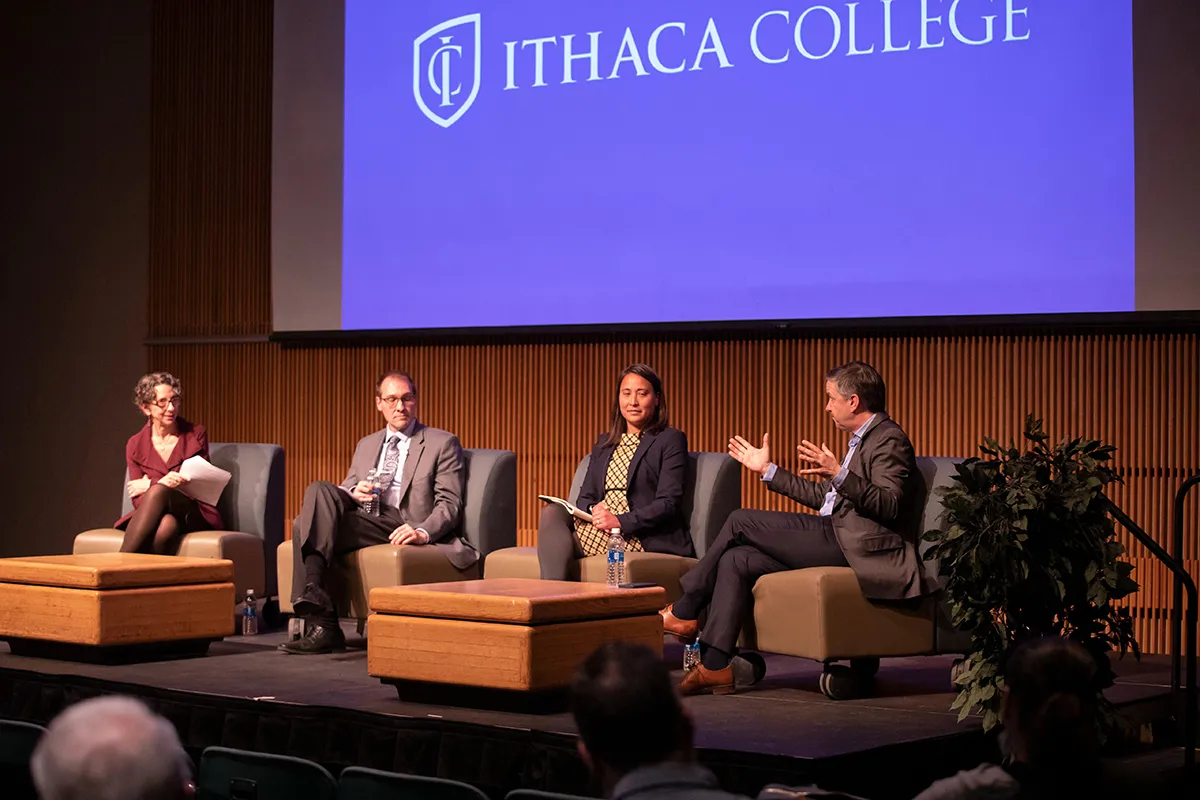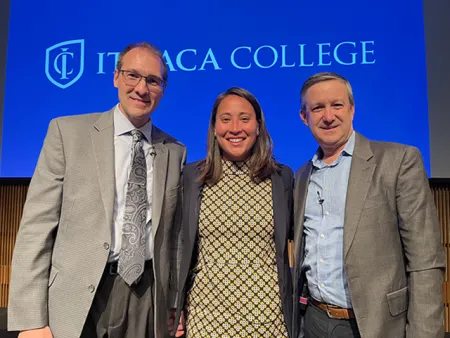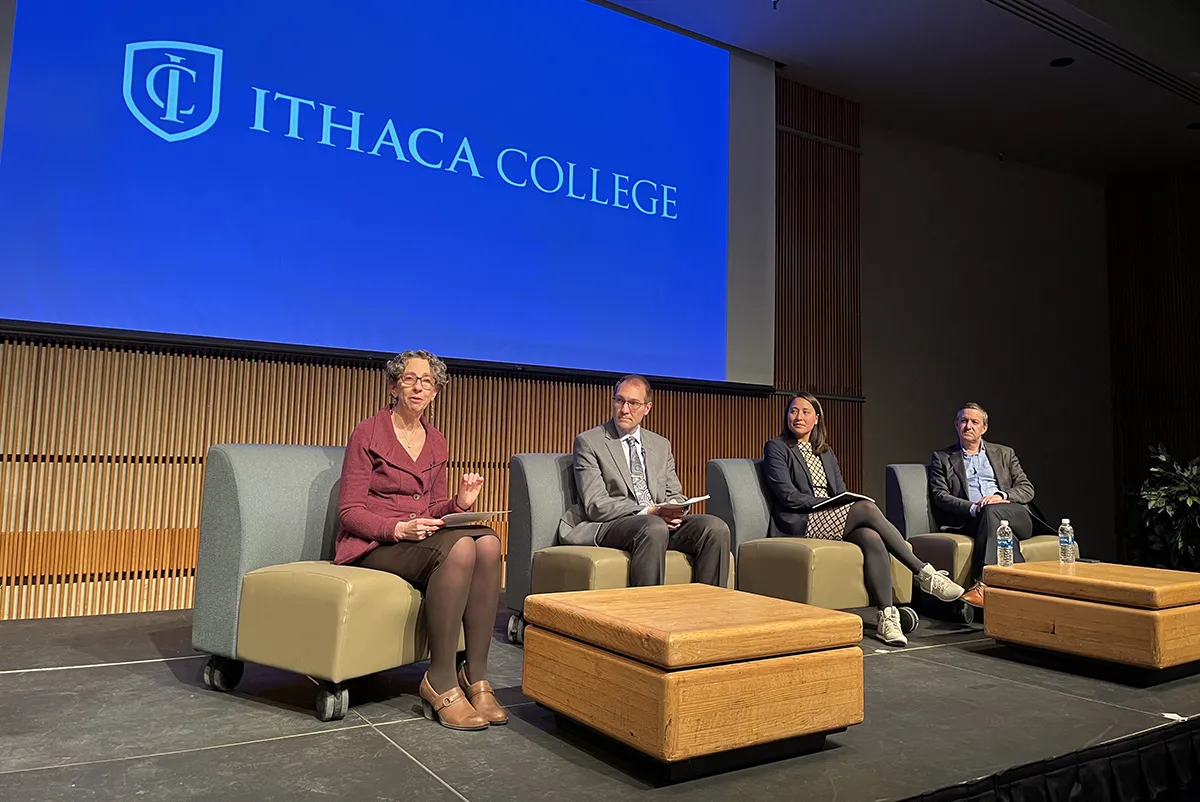Members of the Ithaca College and local communities heard from distinguished higher education thought leaders during a discussion on “The Decade Ahead: Trends in Higher Education” held in Emerson Suites last week.
Panelist conversations centered on the shifting demographics in the college cohort, debate over the value of a degree, and the way work might impact higher education in the next 10 years—and what steps educators and institutions can take to mitigate those changes.
“It is an understatement to say that these are challenging times,” said Ithaca College’s Provost and Senior Vice President for Academic Affairs Melanie Stein as she opened the event as moderator. “But we all believe passionately in our mission as educators, in the mission of our institutions—so we are grappling with these issues.”
The panel was composed of three speakers: Ithaca College Board of Trustees member Jeff Selingo ’95, who is the New York Times best-selling author of Who Gets In and Why: A Year Inside College Admissions; labor economist, author, and Carleton College professor Nathan Grawe; and college access and enrollment expert Adrienne Amador Oddi, who is vice president of strategic enrollment and communications at Queens University of Charlotte. Their expertise brought different perspectives to bear on the topics.


